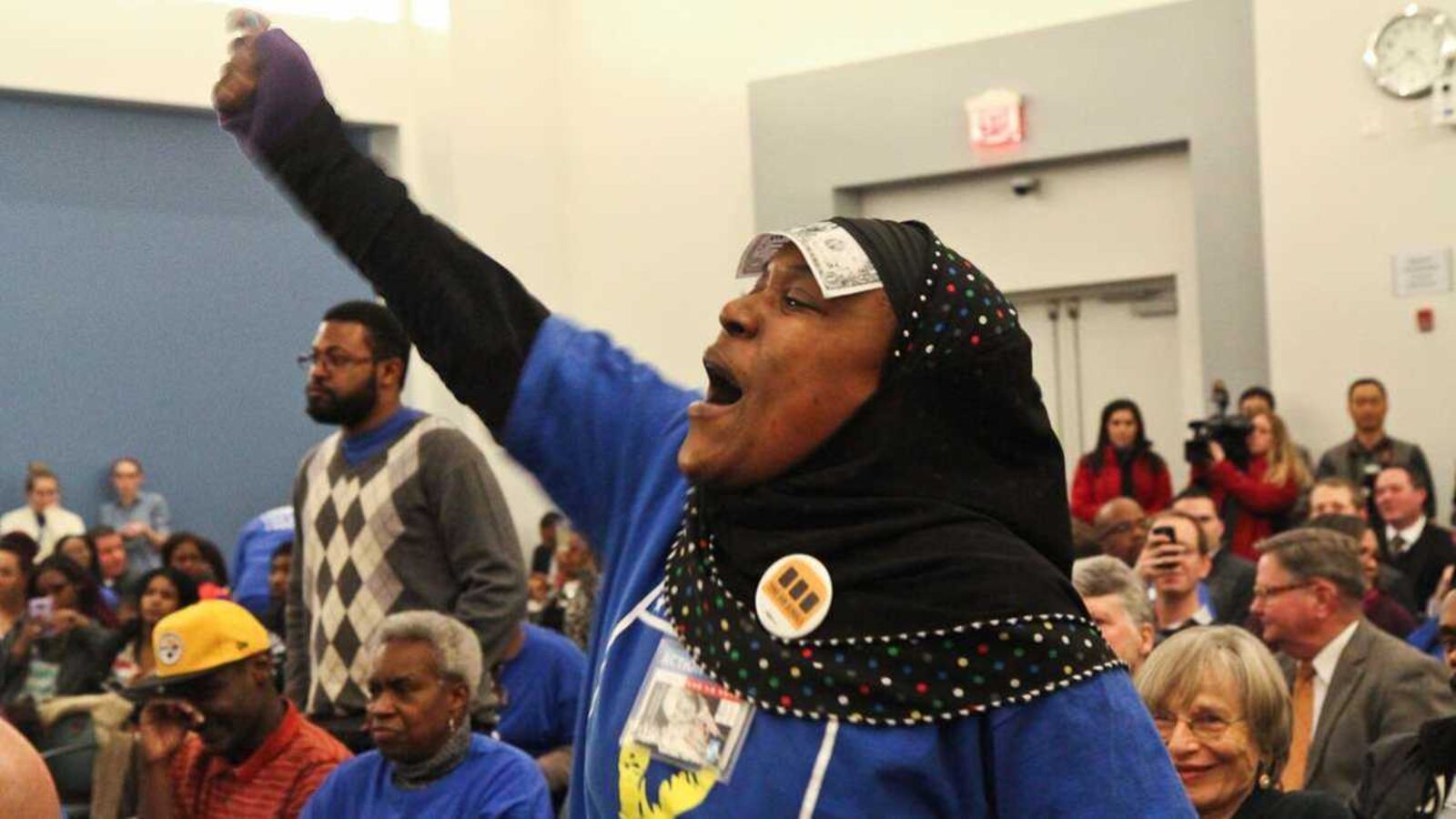This article was originally published in The Notebook. In August 2020, The Notebook became Chalkbeat Philadelphia.
On Tuesday, the Philadelphia School Reform Commission will vote on 12 applications to create new city charter schools.
This is the second vote since the 2014 state cigarette tax legislation mandated the SRC end its moratorium on new charter applications.
Again, a debate has arisen between those who argue that additional charter seats will improve educational opportunities in the city and those who argue that the financial cost of charter expansion will take too much of a toll on existing schools.
In the wake of last year’s new charter school approvals, School District of Philadelphia officials minimized the long-term costs associated with the openings.
But according to the District’s current projections, there’s reason to believe that view was shortsighted by millions of dollars.
In February 2015, when the School Reform Commission voted to apprive five of the 40 charter schools that had applied, Superintendent William Hite stressed that the new charters would not be a fiscal drain on existing District schools.
"We cannot have a situation where any of our children are receiving less as a result of this," Hite said after the SRC’s vote.
District leaders operated under the rationale that new charter seats would not add costs because they would replace those seats lost due to the closure of other charter schools.
The SRC approved each of the new charters with one-year delays, so there has been no fiscal impact this school year.
Beyond that, then-SRC Chairman Bill Green said added costs would be "very limited" as a consequence of the "continued closure of non-performing charter schools."
"It’s a limited impact on the five-year plan," he said.
Hite and Green, though, were banking on the ability of the District to shutter charter schools in a timely manner.
A year later, some of last year’s hoped-for closures have not occurred.
Based on the District’s numbers and projections, NewsWorks estimates that the added costs of last year’s new charters could reach $10.8 million by 2019-20.
How many seats have been shed?
When last year’s charter decisions were made, Wakisha and Walter D. Palmer charters had recently closed – affecting 1,510 students. The District had been pursuing closure at five other charters: New Media Technology, Imani Education Circle, Truebright Science Academy, Arise Academy, and Community Academy of Philadelphia. In total, these school closures would erase 5,662 charter seats from the city – a number much higher than the number of new seats approved.
But all the closures haven’t proceeded as quickly as planned, and unlike closing District schools, the process for shuttering charters is often long and litigious.
Last spring, the state Charter Appeals Board rejected the SRC’s bid to close Community Academy of Philadelphia, in a serious blow to the District’s projections. The District began the closure process for Community Academy in 2011.
In the wake of the board’s decision, the charter – which enrolls 1,206 students – was awarded a new agreement through 2020.
In November, the SRC voted against renewing New Media’s charter. The school can now appeal to the state board – which, as the above example illustrates, can foil the District’s plans.
In December, the Charter Appeals Board indicated that it would uphold the SRC’s vote to close Imani. School officials say they will appeal the decision in Commonwealth Court, and plan to open for classes next fall.
From these three schools, more than 2,000 of the seats the District had expected to trim remain filled.
"It’s one of the biggest problems with the Pennsylvania charter school law. It sets a very low bar for opening a charter – for someone to get granted a charter – but then it sets a very high bar for shutting one down," said David Lapp, staff attorney at the Education Law Center.
As a result, Lapp says, very few charters have been shuttered "even when it’s clear that there’s a number of them that probably shouldn’t be permitted to continue operating."


